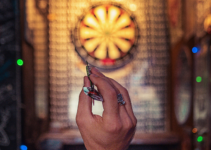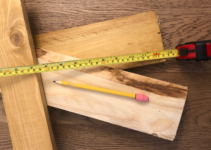In the past, I noticed a sticky note in an admired colleague’s cubicle. It said, “Comparison is the thief of joy.” I asked her about it, and she said that it was how she focuses on what she has – and avoids feeling bad based on what others have. I really liked that. Defining success for yourself is the best way to keep you on-track to your own goals instead of getting sidetracked by somebody else. But is it possible to avoid social comparison? And how do we mitigate any negative effects?
What is Social Comparison?
Social psychologist Leon Festiger theorized that we, as humans, strive toward self-evaluations by comparing ourselves to others. In other words, we socially compare ourselves to determine how we’re doing. And cognitive studies have shown that it’s an unavoidable function of our brains.
Our brains don’t function in absolutes. Every belief that we hold, every thing we think about ourselves is built in comparison to those around us. I mean, I haven’t seen an objective manual for how to live life, have you? Have you ever received a low score on a test and felt bad about it – until you learn that your friends also got low scores? That’s social comparison at work.
There are two types of social comparison – upward and downward. Upward is when a person compares themselves to a standard they perceive as superior and downward is when a person compares themselves to a lower perceived standard. When you get your bad test score, you’re comparing against a top score, and it’s upward. Then, when you find out your friends also got bad scores and feel better, it’s downward.
If social comparison is unavoidable, are we all doomed to joy thievery?
The Pros and Cons of Social Comparison
It’s easy to get wrapped up in the dangers of social comparison. Most of the research around social media has shown that it’s an overall negative force in most people’s lives. Seeing everyone else’s highlight reel while we’re stuck living our hum-drum days can make us feel like we’re missing out on something or doing something wrong.
As it turns out, social comparison can serve to either reassure us or motivate us. As in the example of the bad test scores, downward social comparison can be reassuring. When you compare yourself to a lower standard, you might realize that things aren’t as bad as you thought they were. On the other hand, it could leave you complacent (instead of content).
On the flip side, upward social comparison can serve as a motivator. When you take productivity tips from an organizational expert, you’re using upward social comparison. They’re better than you are at productivity, but that’s ok – you could get that good someday, right? Upward social comparison can be demotivating, though. That’s what the social media research is showing us.
So. How do you fight off the notorious thief of joy?
Four Ways to Fight Negative Social Comparison
Realize that it’s not real
The problem with social comparison comes when we don’t recognize the source of the evaluation. Whatever it is you’re comparing yourself to, it’s not reality. It’s your brain’s best guess at what’s going on! When we see our friends confidently paying for their drinks at happy hour, we assume that they’re comfortable with our finances. But we can’t be sure that’s reality!
My favorite example comes from the Science of Well-Being Coursera. When you look at someone’s resume, you’re only seeing the successes. Nobody lists the jobs that rejected them on their resume! Sometimes, just recognizing that what you’re seeing might not be the whole story can help fight negative social comparisons.
Develop an accurate portrayal
Ok, so you acknowledge that you might not be seeing the whole picture. What if that’s not enough to fight off your negative social comparisons? The next step is to work to develop an accurate portrayal of what’s going on. In my example of being out with friends for drinks and feeling insecure about your finances – just say that! If you’re among trusted friends, simply asking how people are feeling is a great way to not only help with your social comparison point, but it could reset your friends’, too!
But what if it isn’t that simple? What if you sit in your tiny, cramped apartment, wishing for a garage and a basement? You know what you could do? GO SEE IT. Find an open house to attend. Talk to the owners about maintenance and upkeep. Find out how much property tax is. You could realize that you still really want to buy a house. If that’s the case, figure out how to make it happen for you. Use the upward social comparison as motivation. And if you’re freaked out by how expensive it is, remember that your rent is probably much cheaper. Now, use that downward social comparison and make yourself a coffee to enjoy in your cozy, affordable home!
Reset your social comparison
When was the last time you went without social media? I deleted social media for about a month as part of breaking up with my phone. You know what’s awesome about deleting it? If you want it back, you can simply re-download it!
But what do you get out of deleting social media? A reset of your comparison points, of course! Social comparison is only as impactful as whatever it is you’re comparing against. Social media has been great in creating communities that span the globe, but some things you might want to keep close to home.
Another way of resetting your brain is to notice when you’re spiraling into negative social comparison and literally telling yourself – audibly – to stop it. By engaging your vocal chords, you’re using a different part of your brain. It will jolt you out of your thought process and give you an opportunity to choose whether to continue engaging in it or not.
Summary
Our brains are wired on social comparison, so there’s no way to avoid it entirely. But by being aware of what social comparison is and how we can use it to better our lives, we can avoid allowing comparison to be the thief of joy.




